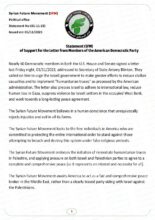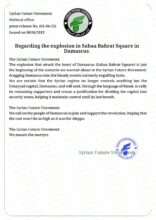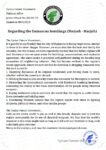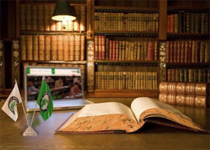Civil representation, a duty of the time.
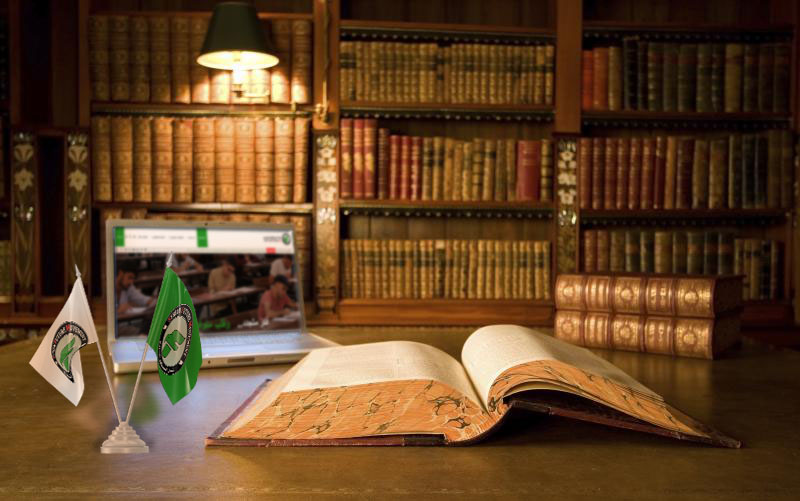
Introduction:
Due to the collapse of government institutions, there is no specific and unified Arabic term to describe the situation where people in their regions form entities to manage civilian affairs, which is smaller than the usual divisions of international organizations, such as municipalities and mayors.
However, some terms and concepts may closely describe this situation:
- Civil society representative: This term refers to a person chosen or elected by a specific local community to represent their interests and speak on their behalf. This, however, may not necessarily reflect dealings with warring military authorities.
- Local mediator: This term refers to a person who acts as a mediator between two conflicting parties, but may not necessarily be elected by the local community.
- Local leader: This term could refer to a person who holds authority and community acceptance, but may not have official power.
- Tribal or clan leader: In some areas, the tribal or clan leader may be the person who speaks on behalf of the local community, although this is not necessarily the case in all regions.
Also, we may find other terms that could be relevant, such as “community representative.” To express the situation more accurately, longer phrases could be used, such as “a prominent local figure who enjoys the trust of the local community and represents them before the conflicting parties,” or “a local leader who has authority and community acceptance and works to protect the community’s interests.”
In general, regardless of the term used, it is essential to define the role of what we will use as a term: “civil society representative” or “local leader” to describe the person who speaks on behalf of the local community before the warring military authorities. This is because the conflict in Syria is a complex struggle involving many conflicting parties, and there is no strong central government capable of asserting control over all regions.
It is important to note that the choice of terminology is crucial in conveying our idea clearly, and the intention is never to refer to political parties, entities, or actors, but rather to a temporary, non-ideological, and non-political service-based civil gathering.
Challenges of Representation:
When discussing the liberation of the city of Aleppo from the control of the Syrian regime forces, the challenges of establishing a civil society representative to organize the relationship between the warring military forces seem complex. The civil society representative in the Aleppo area, in the context of the ongoing conflict, faces a range of complex challenges that hinder their efforts to organize the relationship between the conflicting forces.
Some of the most prominent challenges include:
- Deteriorating security situation: The unstable security conditions and frequent attacks are among the biggest challenges facing any mediation or dialogue efforts. The lack of security stability makes it difficult for the civil society representative to move freely and carry out their role.
- Military plurality: The presence of numerous warring military factions, whether from the Syrian regime or the opposition, makes it difficult to find a single representative to speak on behalf of everyone. Each faction has its own interests and agendas, which may conflict with those of other factions.
- Mutual distrust: The relationship between the warring parties is marked by a great deal of distrust, especially between the Syrian Democratic Forces (SDF) and the opposition.
- External pressures: The conflicting parties are subject to external pressures from various countries, which affects their positions and interests. These external pressures can complicate mediation efforts and make it difficult to reach compromises.
- Ideological differences: There are significant ideological and vision differences between the warring factions, making it difficult to find common ground for understanding and dialogue, especially on issues of pluralism that may be seen by extremist parties as contrary to their principles, which they refuse to normalize.
- Lack of institutional structures: There are no strong institutional structures for civil society in the region, making it difficult for the civil society representative to gain recognition and acceptance from all parties.
- Lack of resources: The civil society representative faces a severe shortage of financial and human resources, limiting their ability to fully perform their role.
- Political manipulation: The civil society representative may face political pressure from the conflicting parties or external forces, causing them to lose their neutrality and independence.
To overcome these challenges, it is essential for the civil society representative to make significant efforts to build trust between the conflicting parties, through continuous and transparent dialogue, and by committing to credibility and integrity.
Additionally, it is important to enhance cooperation between the various components of civil society, and to unify efforts in order to achieve common goals. The representative should also exert pressure on the conflicting parties to adhere to a ceasefire, protect civilians, and return to the negotiating table.
At a more advanced stage, the civil society representative may need to communicate with the international community, explain the humanitarian situation in the region, and pressure influential countries to use their influence in order to find a political solution to the crisis.
Most importantly, the civil society representative should ensure the provision of basic services to the local community, such as healthcare, education, and relief services, in order to gain the trust and support of the people.
Establishing a civil society representative in the Aleppo area (for example) is an important step towards building peace and stability, especially in regions where the local components conflict with the attacking factions. However, in general, achieving all of this requires strenuous efforts and cooperation among all the concerned parties.
Positives:
Despite the many challenges faced by civil society initiatives in conflict areas, the presence of effective civil society representation in conflict zones in Syria holds many positives that contribute to alleviating the suffering of civilians and enhancing the chances for a peaceful resolution to the conflict. Some of these positives include:
Protection of Civilians: A civil society representative can play a vital role in protecting civilians from human rights violations through:
- Monitoring and Documentation: Collecting and documenting evidence of violations, which helps pressure the conflicting parties to stop these violations.
- Providing Services: Offering essential humanitarian services to civilians such as food, medicine, and shelter, as well as providing psychological and social support.
- Mediation: Acting as a mediator between the conflicting parties to protect civilians and secure safe passages for them.
Promoting Dialogue and Understanding: A civil society representative can help build trust between the conflicting parties and promote dialogue and understanding among them by:
- Organizing Community Dialogues: Organizing meetings and dialogues between civil society representatives and the conflicting parties to discuss ways to resolve disputes and reach peaceful solutions.
- Building a Network of Relationships: Establishing broad networks with various actors in the region, whether they are civil society organizations, military forces, or political entities.
Contributing to the Reconstruction Process: A civil society representative can play an important role in the reconstruction process after the conflict ends by:
- Identifying Needs: Identifying the local community’s reconstruction needs and providing recommendations regarding the projects that should be implemented.
- Participating in Decision-Making: Participating in the decision-making process related to reconstruction and ensuring the representation of the local community’s interests.
- Enhancing the Role of Civil Society: A civil society representative can help strengthen the role of civil society in the region and build strong civil society institutions capable of playing an active role in achieving sustainable development.
- Pressuring External Parties: A civil society representative can exert pressure on external parties, such as countries supporting the conflicting parties, to push them toward finding a peaceful solution to the conflict.
In short, the presence of effective civil society representation is an important step toward achieving stability and peace in the region. Civil society is the driving force for positive change and is capable of playing a vital role in building a fair, democratic, and prosperous society.
Negative Aspects of Absence:
Despite the significant benefits of having civil society representation in conflict areas, there are many negative aspects that face these initiatives, which may limit their effectiveness or expose them to risk. Some of these negatives include:
- Direct Targeting: Civil society representatives or their organizations may be directly targeted by the conflicting parties, whether through arrest, torture, or assassination, due to their work, which may conflict with the interests of some parties.
- Political Pressure: Civil society representatives may face significant political pressure from the conflicting parties or external forces, which can undermine their neutrality and independence.
- Kidnapping: Civil society representatives may be kidnapped for extortion or used as a means of pressure on other parties.
- Movement Restrictions: Civil society organizations may face significant difficulties in movement and travel within conflict-affected areas, limiting their ability to provide services to those in need.
- Resource Shortage: Civil society organizations in conflict-affected areas suffer from severe shortages of financial and human resources, limiting their ability to carry out all assigned tasks.
- Conflicting Interests: There may be conflicts of interest among various civil society groups, leading to divisions and competition for resources.
- Misunderstanding: The role of civil society may be misunderstood by the conflicting parties, who may accuse it of bias toward one side or interfering in internal affairs.
- Bureaucracy: Civil society organizations may face difficulties obtaining the necessary permits and licenses to operate due to complex government bureaucracy.
- Corruption: Some civil society organizations may be exposed to corruption, leading to a loss of trust from the local community.
In addition, working in conflict areas requires special skills and abilities, such as the ability to negotiate, build relationships, manage crises, and work under pressure. It also requires a strong commitment to humanitarian values and human rights principles.
To mitigate these risks, a civil society representative must build broad networks with various actors in the region, whether they are civil society organizations, military forces, or political entities. Despite the significant challenges they face, the role of civil society in conflict areas remains vital and essential for building peace and stability.
Conclusion:
There is no doubt that the recent military escalation was surprising, and that changing the maps is a revolutionary act in people’s lives.
While we at the Syrian Future Movement closely follow developments within Syria and feel a sense of relief regarding the level of civil organization and the public’s commitment to the guidance of those responsible for the escalation, we attempt to present a perspective that we consider important to preserve the gains of this calm and its continuity in the event of another map change or the collapse of authority in other areas.
Therefore, we present our recommendation to those concerned, which is as follows:
- A. For civilians:
- Civilians should avoid areas experiencing armed clashes and seek safe places as much as possible.
- Cooperate with humanitarian organizations operating in the area to receive food, medical assistance, and other services.
- Avoid carrying weapons or engaging in combat to prevent harm.
- Participate in community dialogue and build bridges of communication between different social groups.
- Pressure the conflicting parties to cease fire and protect civilians.
- B. For the Syrian regime:
- The Syrian regime must immediately and unconditionally cease fire, commit to halting all hostilities, and actively and seriously engage in a political solution.
- Allow humanitarian aid to reach besieged areas, if any, and provide protection for humanitarian workers.
- The Syrian regime must sit at the negotiation table with the opposition and seek a political solution to the Syrian crisis according to international agreements.
- Respect human rights and international humanitarian law, and hold accountable those responsible for violations.
- C. For the Syrian opposition:
- Increase unity and adherence to the political solution option, and sit at the negotiation table with the Syrian regime if Assad is convinced of the need to avoid the country continuing in the conflict.
- The opposition factions must unify their ranks, agree on a unified vision for solving the Syrian crisis, and end the divide between the military and political sides, with the necessity of governing all of this within a regulatory institutional framework.
- Respect human rights and international humanitarian law, and hold accountable those responsible for violations.
The Syrian Future Movement believes that the international community must intensify its efforts to resolve the Syrian crisis and exert pressure on the conflicting parties to cease fire and return to the political track.
International organizations operating in Syria should also increase their efforts to provide humanitarian aid to civilians and protect them from violations.
We must not forget the important role of the media in raising awareness about the importance of peace, contributing to building bridges of communication between different social groups, and helping us solidify the concept of civil and community representation as a temporary solution during crises and changes in the maps.
Political Office
Research Team
Research and Studies Department
Articles
Syrian Future Movement

